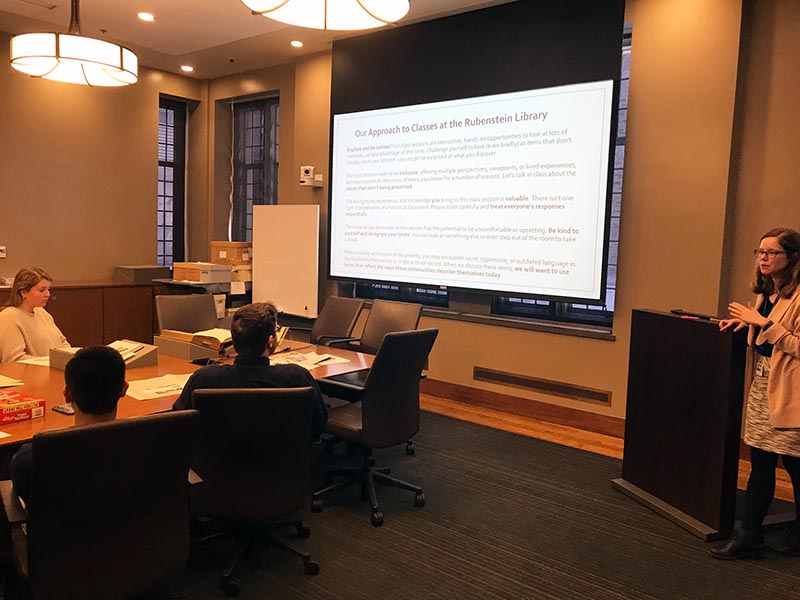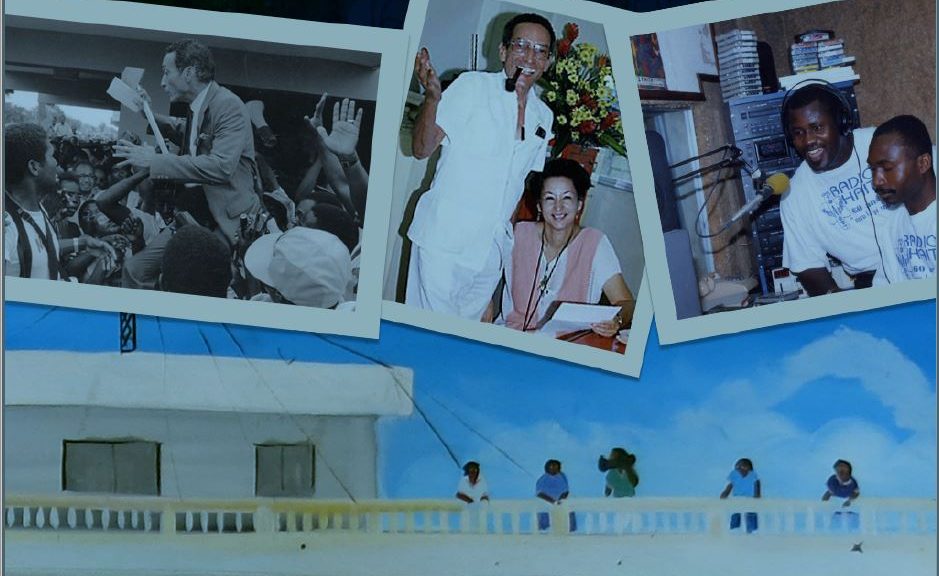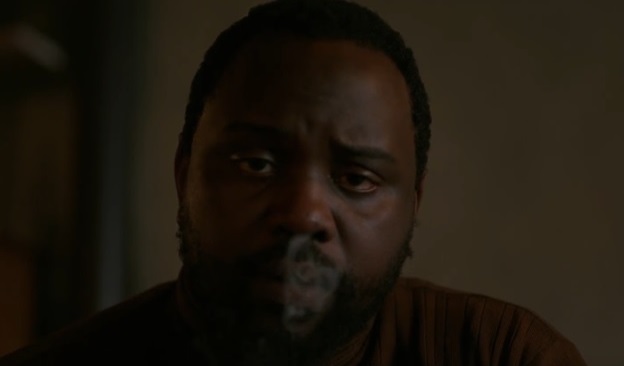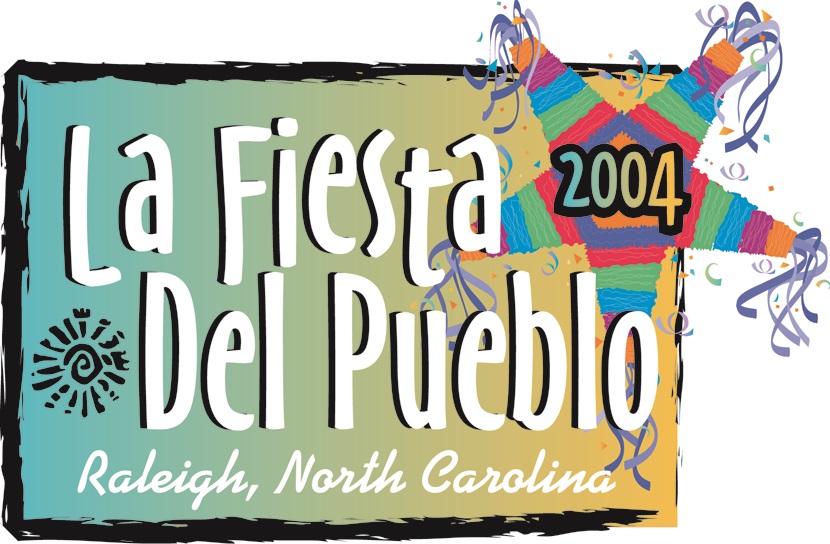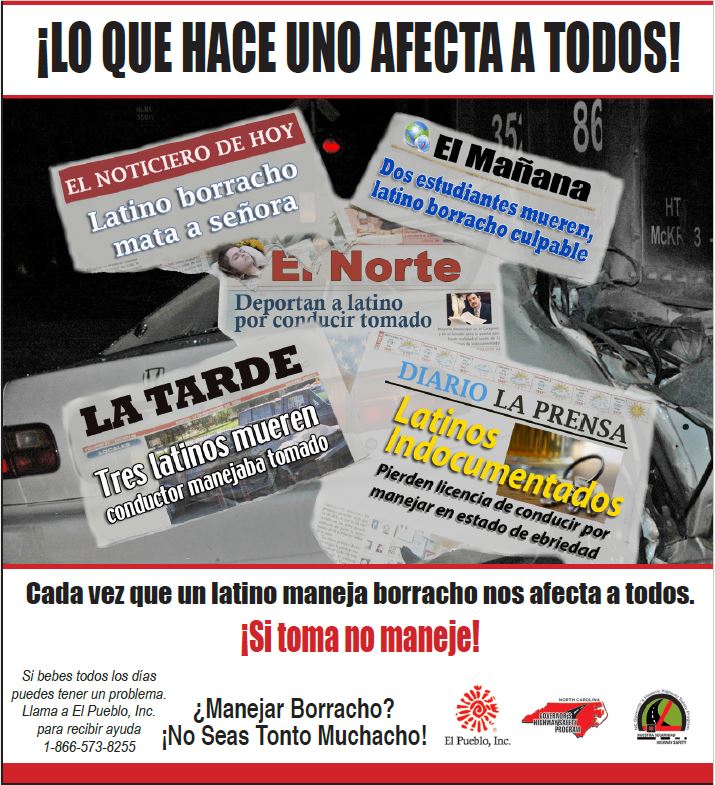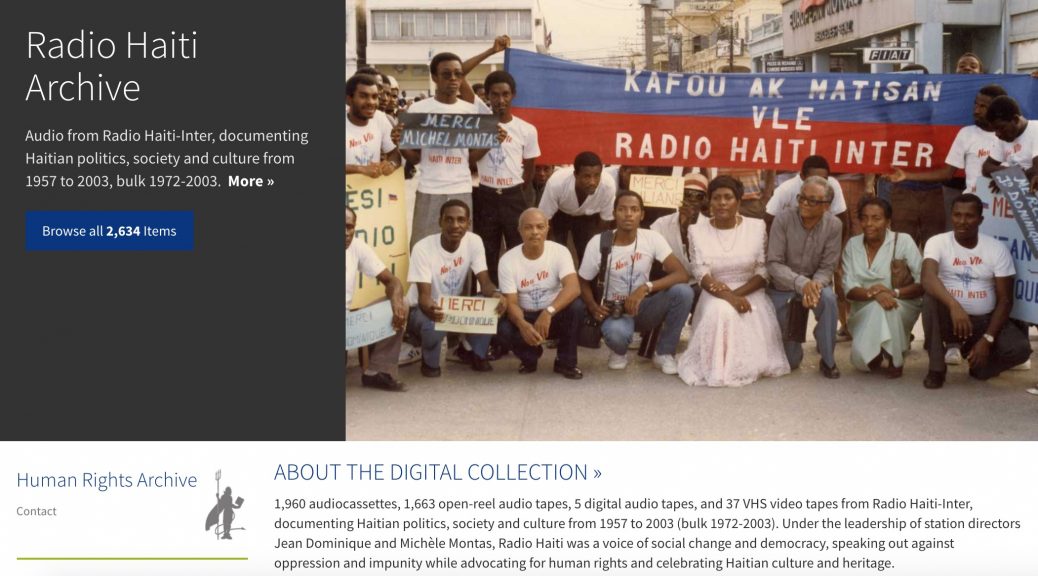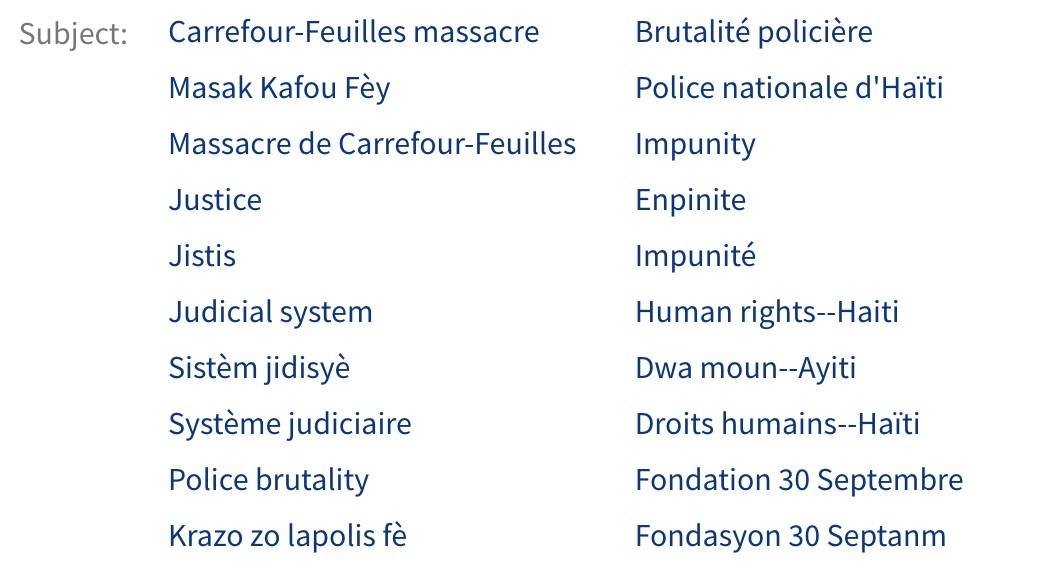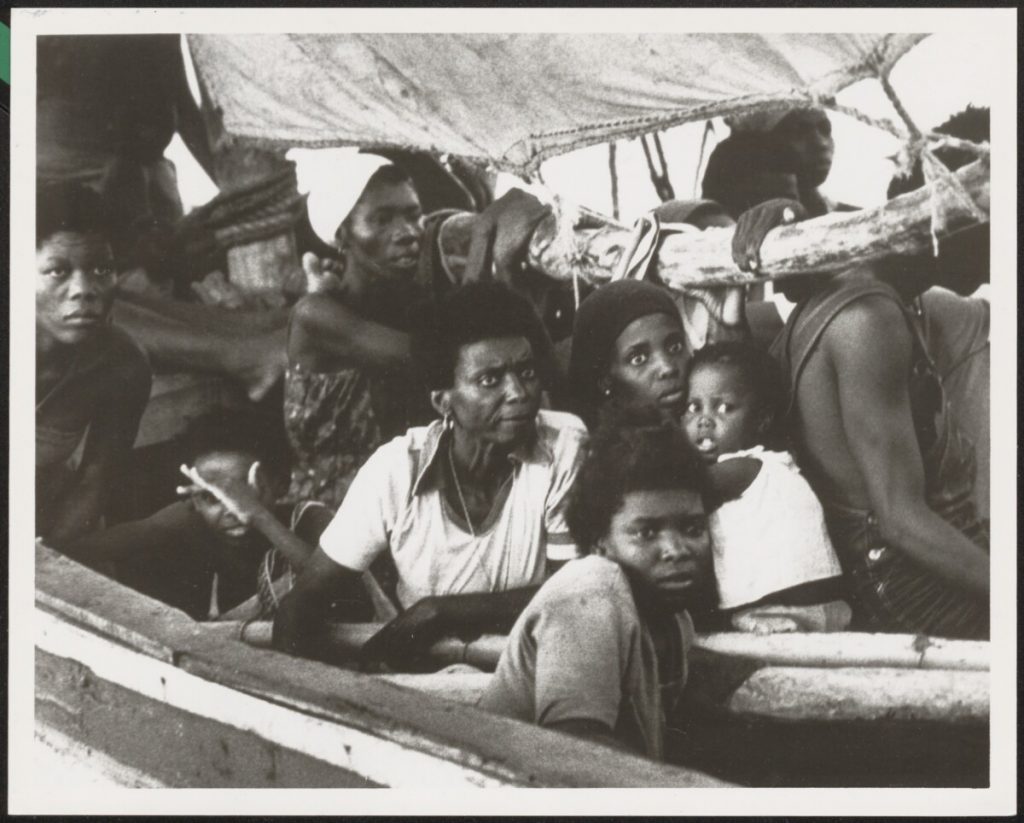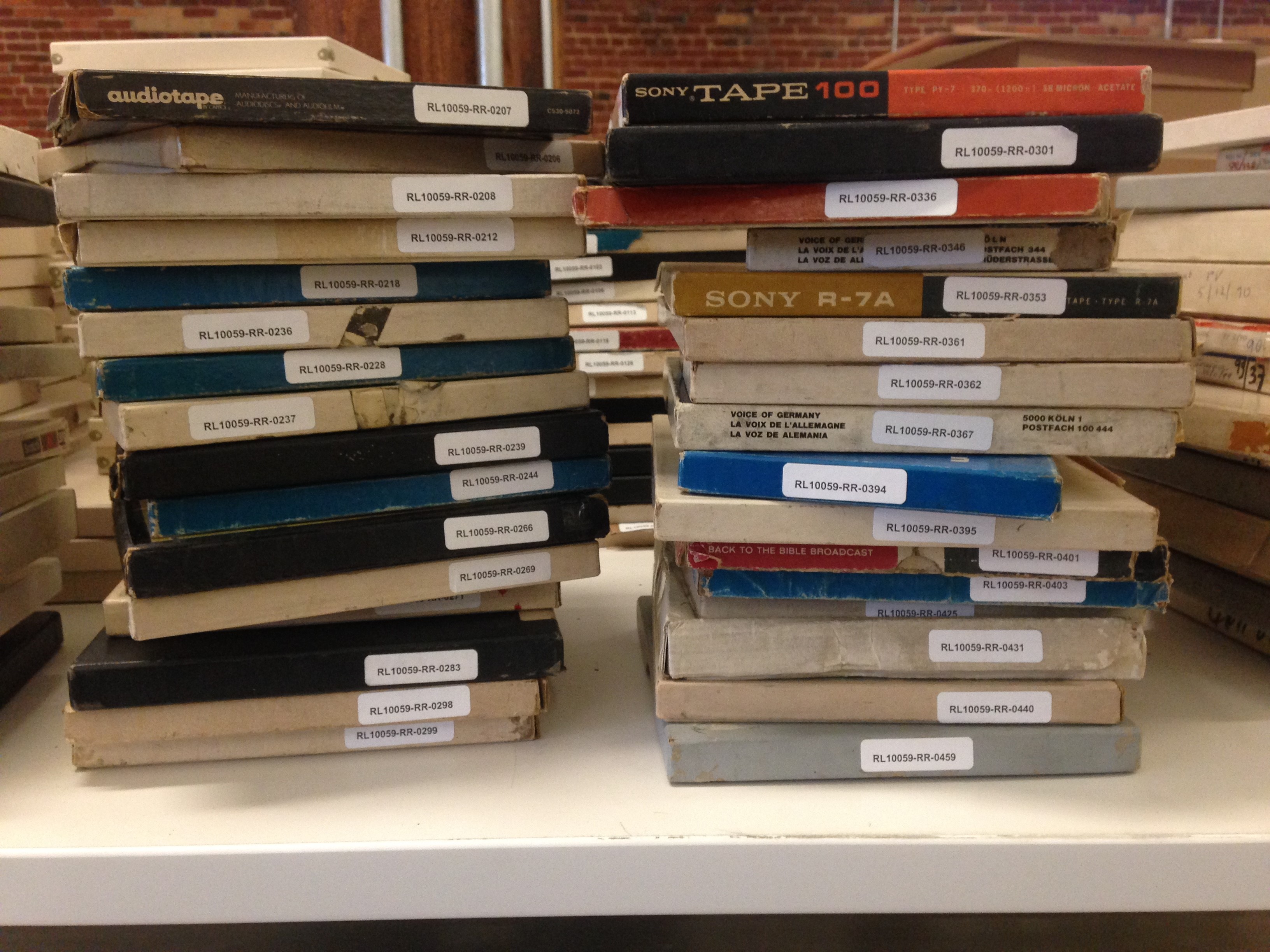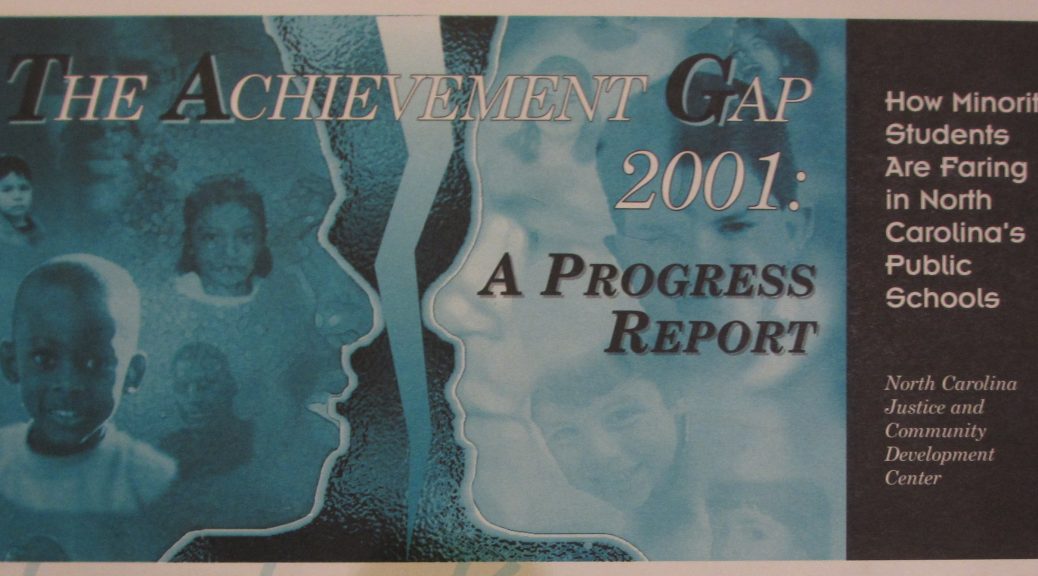The Rubenstein Rare Book and Manuscript Library is pleased to announce the recipients of the 2019-2020 travel grants! Our research centers annually award travel grants to students, scholars, and independent researchers through a competitive application process. Congratulations to this year’s recipients:
Sallie Bingham Center for Women’s History and Culture (Mary Lily Research Grants):
Emily Fleisher, Artist: Artistic project will include a series of drawings based on historic needlework that create a narrative about the lives of American women before 1920
Charlie Jeffries, Faculty, University of East Anglia: Your Best American Girl: Construction of Adolescent Sexualities in the US Culture Wars
Laura Kenner, Doctoral Candidate, Harvard University, History of Art and Architecture Department: Text, Sex, and Video: New York City’s Downtown/Underground Scene (1973-1996)
Nell Lake, Doctoral Candidate, Brown University, American Studies Department: Research for dissertation that will link 20th century moral discourse around care and domestic labor with 20th century politics of women’s work
Jessica Lapp, Doctoral Candidate, University of Toronto, Faculty of Information: The Provenance of Protest: An Exploration of Feminist Activist Archiving
Kaja Marczewska, Research Fellow, Coventry University, Centre for Postdigital Cultures: Distribute-it-Yourself: Judy Hogan and the History of North American Small Press in Circulation (1960s-1990s)
Jennifer Withrow, Doctoral Candidate, University of Massachusetts Amherst, Economics Department: Three Essays on Labor and Marriage Markets: Farm Crisis and Rural-to-Urban Migration in the United States, 1920-1940
John Hope Franklin Center for African and African American History and Culture:
Selena Doss – Faculty, Western Kentucky University, Involuntary Pilgrimage: Black Southerners and Territorial Separatism, 1783-1904
John Harris – Faculty, Erskine College, Pirates of New York: The United States and the Final Era of the Illegal Slave Trade, 1850-1867
Jacqueline Fewkes – Faculty, Florida Atlantic University, American Mosques: An Ethnohistory of Space, Memory, and Muslim-American Community
Crystal Sanders – Faculty, Penn State, America’s Forgotten Migration: Black Graduate Education in the Age of Jim Crow
Kali Tambree – Doctoral Candidate UCLA, Enslaved African peoples who jump off of the slave ship as it is en route to the Americas
Charles Weisenberger – Doctoral Candidate, University of Massachusetts-Amherst “The Telfair Family and the Antebellum One Percent: Slavery in the Early United States, 1735-1875”
John W. Hartman Center for Sales, Advertising, and Marketing History:
Sarah Arnold, Faculty, Maynooth University, Department of Media: Television, Technology and Gender: New Platforms and New Audiences
Mark Bartholomew, Faculty, University of Buffalo, School of Law: “Advertising Outrage and its Legal Regulation”
Rachel Kirby, Doctoral Candidate, Boston University, American and New England Studies: Study of visual representation of Southern agricultural products
Shayan Lallani, Doctoral Candidate, University of Ottowa, Department of History: Cultural Globalization in the Caribbean: Dining and the American Middle-Class Turn in Cruise Ship Tourism, 1920-2016
Adam Mack, Faculty, School of the Art Institute of Chicago, Liberal Arts Department: Limitless: Supermarkets and the Dilemma of Choice
Brent Malin, Faculty, Pittsburgh University, Department of Communications: Ordinary and Necessary: A History of the American Tax Deduction for Advertising
James McElroy, Doctoral Candidate, University of Minnesota, Department of History: Racial Segregation and Market Segregation: The Late-Twentieth Century History of the American City Supermarket, 1960-1990
Emily Morgan, Faculty, Iowa State University, Department of Visual Culture: Imagining Animal Industry: Visualizing the American Meatpacking Trade, 1890-1980
Robert Terrell, Faculty, Syracuse University, Department of History: The People’s Drink: The Politics and Culture of German Beer in the Twentieth Century
Emily Westkaemper, Faculty, James Madison University, Department of History: Career Women: Image and Reality in U.S. Popular Culture, 1940-2000
History of Medicine Collections:
Matthew Barrett, Doctoral Candidate, Queen’s University, History Department: Conduct Unbecoming an Officer and a Doctor: Medical Attitudes toward Homosexuality and the Court-Martial of Dr. Percy E. Ryberg
Kelly O’Donnell, Faculty, Thomas Jefferson University, College of Humanities and Sciences: Study of the role doctors’ wives played in the medical profession, recasting the history of American health care by focusing on the women behind the “great men” of medicine
Laura Smith, Doctoral Candidate, University of Arkansas, History Department: Southern Doctors from Southern Communities: Medical Education and Professionalization in the Nineteenth-Century South
Human Rights Archive (Marshall T. Meyer Research Travel Grants):
Meghan Gibbons, Independent Researcher: Nationalism and Maternal Protest in the US, El Salvador, and Argentina
Gabrielle Girard, Doctoral Candidate, Princeton University, History Department: Modeling Democracy: The Global History of an Argentine Human Rights Experiment, 1978-1991
Michael Jones, Doctoral Candidate, Tulane University, Department of Political Science: Blood & Peace in the Hills of Africa: Post-conflict Institutions in Comparison
Zachary Norman, Faculty, University of Utah, Department of Art & Art History: “Researching Images of Incarceration: Developing Visual Art & Studies Courses to be Taught Inside”
Mira Rai Waits, Faculty, Appalachian State University, Department of Art: Colonial Carcerality: The Birth of the Modern Prison in India
Harry H. Harkins T’73 Travel Grants for Lesbian, Gay, Bisexual, and Transgender History:
Jonathan Coleman, Independent Researcher: Anywhere, Together: A Queer History of Kentucky
Benjamin Serby, Doctoral Candidate, Columbia University, History Department: Gay Liberation and the Politics of the Self in Postwar America
Photographic Research Grants, Co-Sponsored by the Archive of Documentary Arts and the History of Medicine Collections:
Rachel Fein-Smolinski, Faculty, Syracuse University, Department of Transmedia: “Sex Lives of Animals Without Backbones: A Study of the Aesthetics of Pain and Courage Within the Western Healthcare System”
We look forward to working with you all!




